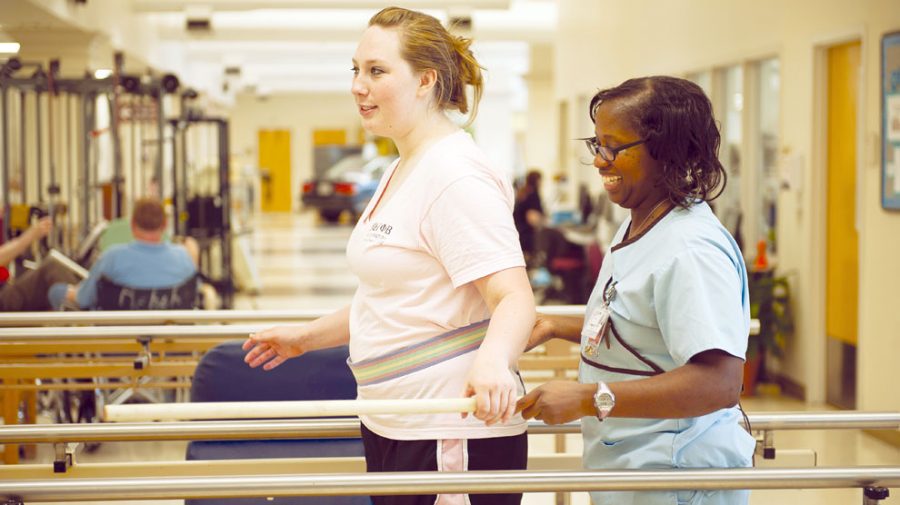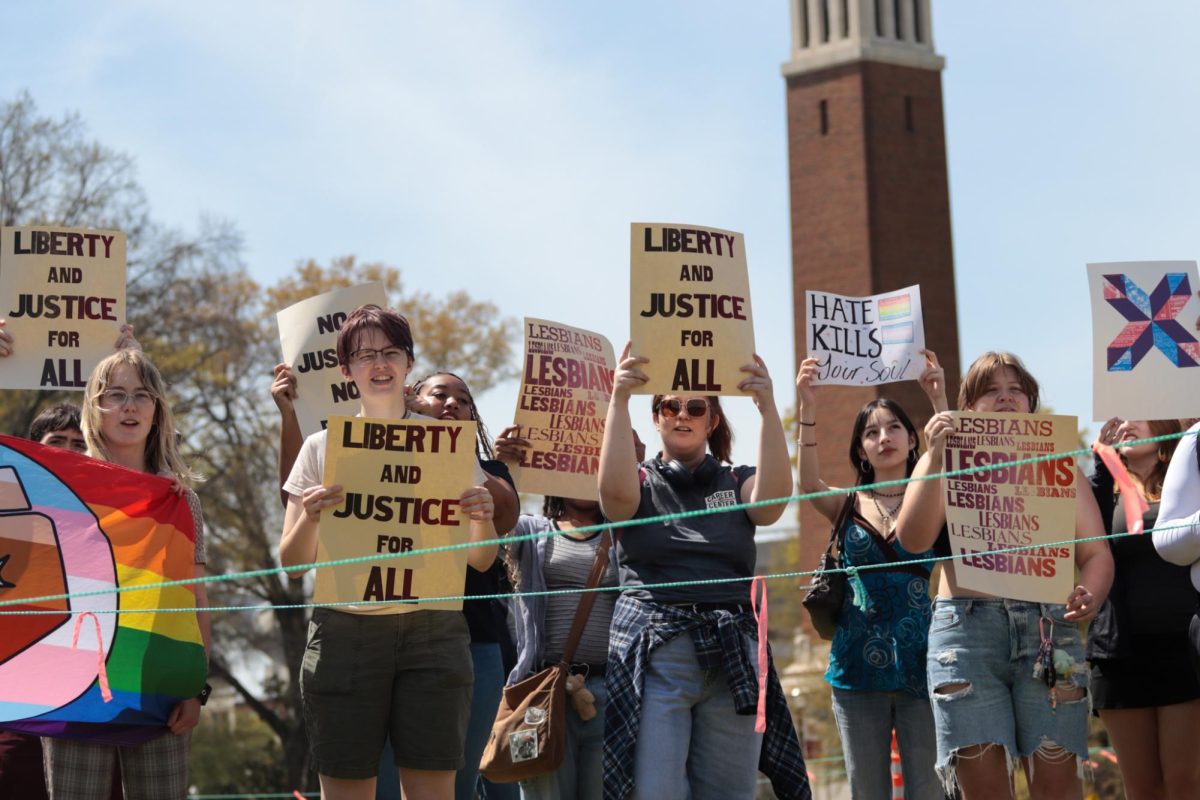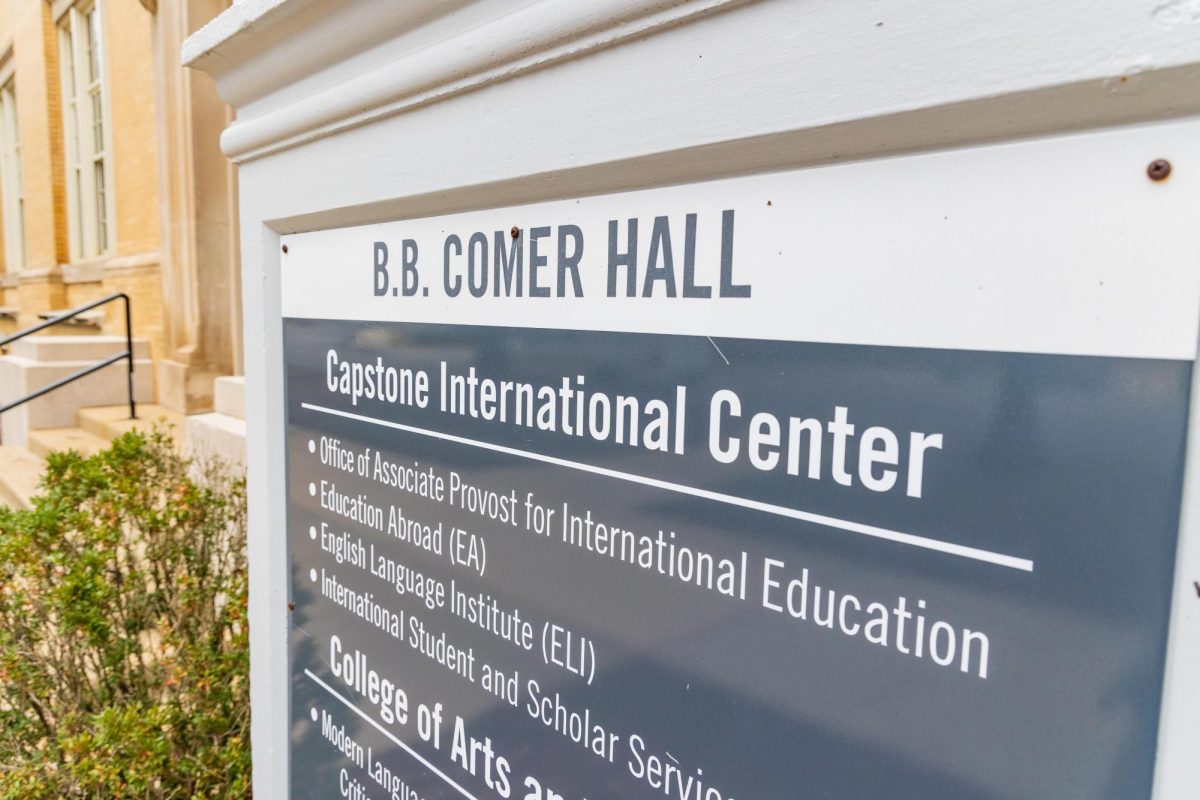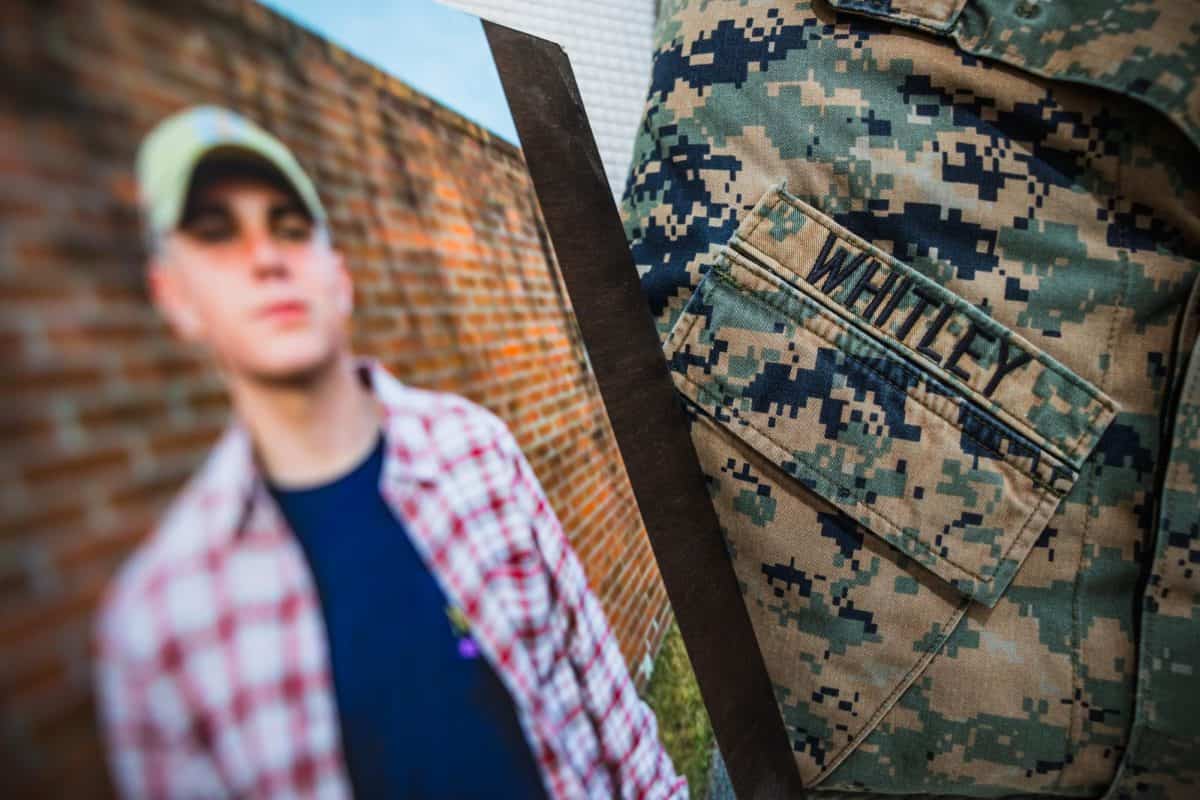Kelle Thrash was relieved, as most UA parents were, when her daughter Chelsea Thrash called her shortly after the April 27 tornados ripped through Tuscaloosa. But relief changed to horror as Chelsea explained she was lying in a courtyard, paralyzed from the waist down.
After hearing her daughter say those words, Kelle Thrash anticipated hospital and therapy visits with Chelsea spending the months ahead recovering from her traumatic injury at home in Pelham.
But on Aug. 24, just shy of four months from that fateful day, Chelsea Thrash began her junior year by walking to class like any other student at the University of Alabama.
“You tell her to walk 10 steps and [she’s] going to walk 20,” said Kelle Thrash. “She does what she wants and you better not get in her way.”
When the tornado tore through Tuscaloosa last spring, Chelsea was taking cover in her boyfriend’s Charleston Square apartment. According to Chelsea, the last thing she remembers is the sound of a jet engine and the bathroom door being sucked from its hinges.
Chelsea was knocked unconscious when the storm hurled her out on to the complex’s courtyard. From others’ accounts, she estimates it was about 30 minutes before she woke up.
“[I] looked up to see the entire apartment destroyed and I couldn’t feel my legs,” she said. “Being a biology major, I knew that if I panicked and moved, I could cause way more damage.”
Chelsea said a couple trained in wildlife rescue discovered her and were able to fashion a backboard out of a dining room table. Someone found her cell phone, miraculously intact, and she was able to make the call to her parents.
First responders carried Chelsea out of the courtyard before finding a truck that would drive her to DCH. She was later transferred to UAB.
In the early hours of April 28, Chelsea was diagnosed with an L1 burst fracture – the L1 disc burst had traumatically shifted her spinal cord. In emergency surgery, doctors performed a spinal fusion and removed bone fragments from her spinal nerves.
In those moments, Kelle Thrash wasn’t very worried if her daughter would walk again – she was just thankful Chelsea was alive.
“I wasn’t too worried at that point whether she would walk again, because I knew her mind was OK,” Kelle Thrash said. “If she’s going to be paralyzed, that’s fine – that’s something we’ll deal with. The person she is, that’s in her mind. And that will always be there.”
Chelsea felt a little differently.
“I was always a driven individual so I knew that I needed to get moving to get back on my feet,” she said. “I knew I wanted to be back at UA in the fall and to do that I needed to learn how to walk again.”
It took Chelsea 15 days to sit up. It took an hour for the occupational therapist to help her dress in a T-shirt and shorts for the first time.
“I had to relearn how to dress myself, bathe, all other forms of caring for oneself that most of us don’t think of,” Chelsea said.
Kelle Thrash said Chelsea stood in therapy one day with the help of four physical therapists. She was able to walk across the floor with their help and a special walker. Now she is able to walk with a little assistance from a cane.
A Go-Getter
“She was just not your typical spinal cord injury patient,” Kelle Thrash said. “Chelsea is a classic oldest child, Type-A, go-getter.”
Those who know Chelsea cannot help but mention the grit the girl possesses. It’s no surprise to them that she was able to accomplish so much in less than four months.
“Once I saw her move her toes, I knew that she would be OK,” said Sloane McCrary, Chelsea’s boyfriend. “For the two years that I have known her, she has had more determination and drive than anyone I’ve ever met.”
For the Type-A go-getter, the adjustments she had to make to return to school have been somewhat difficult.
“I have never been one to make excuses,” Thrash said. “I received a handicap placard from the state and University so I can be mobile to class without wearing myself out,” she said.
“We had some issues about how she was going to be able to cope with the physical parts of being around campus and the emotional parts of being away at school and being able to take care of anything herself,” said Kellie Thrash. “It was more difficult sending her off to school at the beginning of her junior year than her freshman year.”
Despite achieving so much so quickly, Chelsea said she has no plans to slow down. She continues to attend physical therapy, and her next goal is to walk without the assistance of a cane.
“It’s so amazing to be able to see her walk on her own to class,” McCrary said. “Although she still uses her cane, I know that she is working very hard to get off it and expects it to happen soon.”
Chelsea said even with intensive physical therapy, the hardest thing to deal with is the stares she thinks she gets.
“I understand some people are not comfortable talking about what happened, but I would like to tell them that I have dealt with it, and would love to share my experiences with them,” she said.
Even if her physical therapy is difficult – and the stares a little awkward – Chelsea Thrash is glad to be back living the normal life of a college student, which even includes early morning classes.
“Through all this, I am so happy I have the opportunity to go to class, even though I have an 8 a.m. everyday,” she said. “I love school and the friends I have made here, and I wouldn’t want to go anywhere else in the entire world.”









